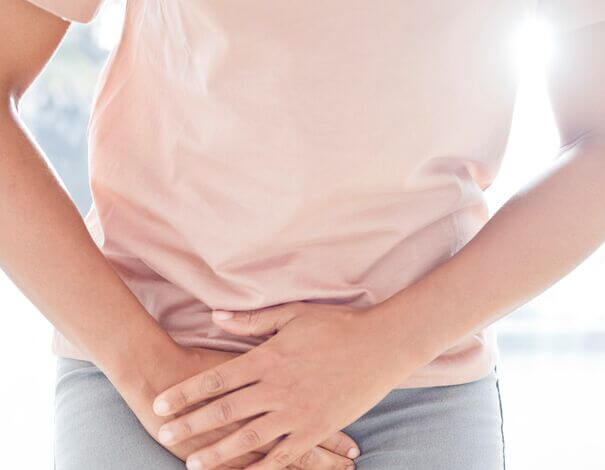Menopause Symptoms, Stages and Treatment
Menopause is a normal part of every woman’s life. However, the period leading up to menopause, known as perimenopause, can be a difficult time for some women because of fluctuating hormone levels. Read more to understand the effects of hormonal changes and learn how to cope with them as you go through this transition.What are the stages of menopause?
Menopause is the point in time when a woman has not had a menstrual period for at least 12 consecutive months.
Perimenopause is the period that leads to menopause while postmenopause is the period that follows it.
Perimenopause typically starts between the ages of 45 to 55. Some factors can influence the age when perimenopause starts, but women often experience menopause at the same age as their mothers. In Canada, on average, women experience menopause at age 52.

What are the symptoms of menopause?
Female sex hormones are involved in many metabolic processes, not just fertility. As a result, hormonal changes during perimenopause can cause many symptoms affecting multiple organ systems.
Menopause symptoms usually occur gradually and can last for several years, sometimes into postmenopause. Symptoms vary greatly from woman to woman. While 10% to 15% of women will have no symptoms other than irregular menstrual periods, most women will experience some impact on their quality of life.
Irregular menstruation
During perimenopause, estrogen and progesterone levels gradually but unpredictably decrease, causing irregular periods. At first, your periods may be longer or shorter, and the amount of bleeding may be lighter or heavier. Over time, periods become intermittent and then stop altogether.
Hot flashes
Hot flashes are without a doubt the most common symptom and one of the most inconvenient for women who get them. They are often accompanied by palpitations, headaches and dizziness, and they often disrupt sleep when they occur at night (night sweats). Hot flashes can continue for up to 10 years after the menopause.
Tips to relieve hot flashes
- Keep the room temperature cool and comfortable, particularly in your bedroom.
- Wear layers of clothing so that you can take off layers when you feel hot.
- Drink water or a cold drink when you get a hot flash.
- Breathe slowly and deeply.
- Practise relaxation techniques.
- Exercise regularly (at least 30 minutes, 5 times a week).
- Avoid foods that trigger your hot flashes, such as alcohol, caffeine, or spicy foods.
- Don’t smoke.
Genital and urinary tract symptoms
Some women experience genital and urinary tract problems, such as vaginal dryness, pain during sex, mild urinary incontinence, or urinary tract or vaginal infections that become more frequent.
Tips to decrease genital and urinary tract symptoms
- Stay hydrated, preferably by drinking water, and don’t ignore the urge to urinate.
- Wear underwear made of natural fibre (cotton) and avoid pants that are too tight.
- Use a vaginal lubricant to reduce the discomfort caused by vaginal dryness. Your pharmacist can help you choose the right product for you. Hormone therapy may also help with vaginal dryness.
- If you are taking medications for other health problems, ask your pharmacist if they may affect your libido. Other treatment options that do not affect the libido may be available.
- Have realistic expectations about your sexuality and talk to your partner. Communication is important.
- Many factors can affect your sexual desire, not just menopause. A sex therapist may be able to help you cope with the changes in your sexuality.
Psychological symptoms
Menopause is also associated with psychological symptoms, such as mood swings, irritability, anxiety, and sometimes depressive symptoms. Problems related to other menopause symptoms may play a role. For example, night sweats can disrupt sleep, and poor sleep can contribute to irritability, concentration or memory problems, fatigue and, in the long term, a changing mood.
Tips to decrease psychological symptoms
- Treat the other symptoms of menopause, e.g., hot flashes, that may be causing psychological symptoms.
- Get regular physical activity. Exercise has a beneficial effect on mood and can help improve sleep.
- Learn to manage stress.
- Practise relaxation techniques.
- Get psychotherapy to better deal with the emotional upheavals and changes of this stage of life (e.g., children leaving home, parents’ loss of independence, retirement).
- Take time for yourself and your favourite activities.
Musculoskeletal symptoms
The drop in estrogen levels during perimenopause may have several impacts on your bones, muscles and joints. Loss in bone density, which can lead to osteoporosis, is well recognized as a direct consequence of menopause. But low estrogen levels are also associated with joint pain, loss of muscle mass, and progression of osteoarthritis.
Tips to relieve musculoskeletal symptoms:
- Take vitamin D supplements and eat a calcium-rich diet to keep your bones healthy and reduce your risk of osteoporosis.
- Exercise regularly to maintain your muscle mass (e.g., resistance training) and improve your balance.
- Do not smoke. Smoking contributes to bone loss.
Skin and hair changes
Estrogen plays a role in hair growth and water retention in the skin. As estrogen levels drop, hair may become thinner and skin drier. This can often result in itchiness. Additionally, hormonal changes may contribute to the growth of facial hair, particularly on the upper lip or chin.
Dark spots, sometimes called age spots, may appear on the skin. Over-the-counter creams or prescription medications may help reduce their appearance. Your healthcare provider can recommend a product that is right for you.
Tips to maintain a healthy skin
- Use skin care products that contain no irritants, such as fragrance, colors or alcohol.
- Moisturize your skin daily.
- Apply your moisturizer immediately after taking a shower or bath, while your skin is still damp.
Always wear a sunscreen when you go outside.
How is menopause treated?
It is important for each woman to make her own decision, in consultation with her health care professional, about whether or not to treat her menopausal symptoms. This decision should take into account her medical condition and the severity of her symptoms. Mild symptoms that do not significantly affect quality of life may be addressed through non-pharmacological measures, while moderate to severe symptoms may require medication.
Natural health products (NHP)
A number of natural health products are used to treat menopausal symptoms, such as isoflavones, black cohosh, dong quai, ginseng, evening primrose oil and gingko. While studies on these NHPs are generally inconclusive, some women report some benefits.
Even though they are natural products, NPHs may cause adverse effects and interact with certain drugs. If you want to try an NPH to relieve your symptoms, ask your pharmacist to recommend one that is compatible with your health and any medications you’re already taking.
Hormone therapy (HT)
Hormone therapy is usually prescribed when symptoms are moderate to severe and affect quality of life. In addition to relieving menopausal symptoms (e.g. hot flashes, vaginal dryness), HT reduces the risk of heart disease, endometrial cancer, type 2 diabetes and osteoporosis and fractures.
HT is not without risks. In some women, it may slightly increase the risk of blood clots, stroke or breast cancer. If HT is started within ten years of menopause, its benefits outweigh its risks in women who have no contraindications to its use. Your healthcare provider will review your medical history to make sure HT is right for you.
Experts no longer recommend that HT be stopped after a certain number of years. However, its usefulness, safety and benefits must be reassessed every year.
For women with an intact uterus, HT includes both estrogen and progestin (or estrogen and a selective estrogen receptor modulator). Women who have had a hysterectomy only need estrogen. HT is available in a variety of forms, including oral pills, patches, gels, creams, or intravaginal rings, making it possible to tailor HT to each woman’s needs.
Women sometimes worry that HT is not safe or effective because it is made in a laboratory and is therefore “not natural” or not chemically identical (or bioidentical) to natural hormones. In fact, many regulated products, approved by Health Canada, contain hormones that are derived from natural sources and/or are bioidentical to those produced by the body. Bioidentical hormones are no more effective or safe than other approved menopausal hormones. Your healthcare professional will recommend the most appropriate product based on their assessment of your overall health condition.
Non-hormonal therapies
Some antidepressants and a drug called gabapentin have been shown to relieve hot flashes. These may be an option for women who do not want or cannot use HT.Are blood tests useful to diagnose or treat menopause?
Because hormone levels can vary greatly depending on when they are measured, blood tests can be misleading and are not systematically used to diagnose menopause. The signs and symptoms a woman reports are usually enough to confirm that she is in perimenopause or has reached menopause.
Blood tests are most useful for women who experience menopausal symptoms before age 45 (early menopause) or if your healthcare professional suspects your symptoms may be caused by another health problem.
HT dosage is not adjusted based on blood levels but rather on its effect on symptoms.Support is important!
Although perimenopause is a normal process, you do not have to suffer through this transition. Work with your healthcare provider to find the best option for relieving your symptoms. If you feel you are not being heard, do not hesitate to ask for a second opinion.
Remember that scientific knowledge about menopause is constantly improving and new treatment options may become available. Take the time each year to review the purpose and effectiveness of your treatment with your pharmacist or healthcare provider.
Your pharmacist is here for you!
If you have any questions or concerns about menopausal therapy, consult your pharmacist. In many provinces, pharmacists can work with you to adjust the dosage of your treatment to better relieve your symptoms. If you prefer to use an NPH, they can help you choose a product that is right for you.
The pharmacy services presented in this section are offered by pharmacist owners who are affiliated with Proxim. The pharmacists are solely responsible for the professional activities carried out during the practice of pharmacy.
The information contained herein is provided for informational purposes only and is not intended to provide complete information on the subject matter or to replace the advice of a health professional. This information does not constitute medical consultation, diagnosis or opinion and should not be interpreted as such. Please consult your health care provider if you have any questions about your health, medications or treatment.




